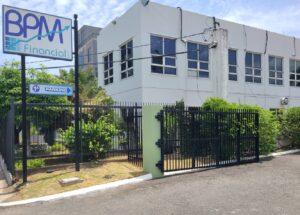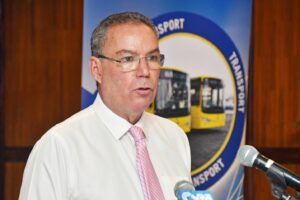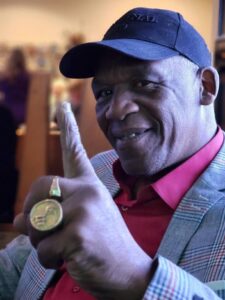
Burkina Faso’s ascent
Lessons for developing countries
Burkina Faso, a country landlocked in West Africa, has been on a meteoric rise recently. A former French colony previously known as the “Upper Volta”, the country now stands at a pivotal crossroads in its modern history, boldly redefining the contours of national sovereignty not only in West Africa but across all developing countries.
Amidst a complex landscape marked by political transition, regional instability, and external pressures, the country has embarked on a path of self-determination rooted in reclaiming agency over its security, resources, and governance.
No longer content to be a passive actor in global or regional affairs, Burkina Faso is reshaping its identity and asserting a model of leadership that prioritises national interests, cultural pride, and grassroots resilience. In doing so, it challenges traditional paradigms of dependency and foreign intervention, signalling a powerful shift in the narrative of African autonomy and collective strength.
Burkina Faso was occupied by the French for approximately 64 years (1896-1960). Soon after taking power through a military coup in 2022, President Ibrahim Traoré, still one of the world’s youngest leaders at age 37, expelled the final French forces from the country, with the end of a military agreement hastening their withdrawal, and has made an aggressive thrust towards nationalising its resource extraction operations, while forging an increasingly closer alliance with Russia, albeit without an official announcement. Predictably, this relational proximity has stoked tensions with the United States, which has expressed concerns over the country’s pivot towards the eastern European country.
While he has been criticised in some Western quarters for his left-wing economic policies, Traoré’s strong leadership has delivered material benefits for the Burkinabe, with his social media savvy approach finding favour among the population, the median age of which is only 18 years old, and his popularity has drawn parallels with one of his predecessors, Thomas Sankara, who, like Traoré, ascended to the prime ministership in his early 30s.
Beyond his ability to connect with youth, Traoré understands the vital importance of fostering economic autonomy and appears to have a desire to bequeath a legacy of sustainable economic development while weaning the country off the aid of Western imperialist powers. Indeed, his economic strategy has seen the country reduce its fiscal deficit and strengthen its external competitiveness, and has been driven in large part by promoting self-sufficiency in agriculture, which, along with robust performance in the services sector, has resulted in a decline in the extreme poverty rate.
Such has been the extent of progress achieved by the West African nation that even the Western bastion of financial management, the International Monetary Fund (IMF), has had cause to heap praises on the country for its positive fiscal outlook which projects rising domestic revenue, a steady handle on its public sector wage bill and increased spending on health, education and social protection for the most vulnerable.
Given Burkina Faso’s abundant natural resources, particularly its significant gold reserves, the country had the potential to be far more advanced economically prior to President Traoré’s leadership. Under previous leadership however, the economic benefits from gold and other resources were not effectively harnessed or distributed to foster broad-based development. President Traoré’s leadership marks a pivotal shift toward maximising the potential of these resources, particularly through nationalising key industries and investing in value-added sectors to drive sustainable growth and development.
Since assuming office, President Traoré has implemented a comprehensive set of economic reforms aimed at enhancing Burkina Faso’s position on the global stage. These reforms extend across key sectors, including mining, infrastructure, agriculture, and energy. Notably, in 2024, the country established its first Treasury Depository Bank, a strategic move to secure funding for critical development projects. Additionally, President Traoré has prioritised investment in local processing industries to add value to the nation’s agricultural products, thereby fostering greater economic growth and self-sufficiency through his Presidential Initiative for Agricultural Production.
Burkina Faso’s progress, despite the circumstances of the Traoré regime’s ascent to power and his consolidation of authority, has not only served as a refreshing departure from the typically self-serving style of leadership on the continent over many decades, but has offered lessons for developing countries looking to reverse their fortunes and set themselves on a path of sustainable development.
First, effective organisation and coordination in the state bureaucratic apparatus, allied with the creation of fiscal space through careful management of revenue sources, enables the optimal delivery of social benefits. Allied with infrastructural developments (particularly in agriculture), these reforms have become productivity-inducing, resulting in a positive and resilient macroeconomic outlook.
Second, a focus on industrial improvements through the addition of value and the reduction of wastage and inefficiency is ultimately what matters for economic growth. Burkina Faso has invested heavily in augmenting its agricultural supply chain through upgrading farm roads and building greater connectivity between farms and centres for processing, packaging and preservation of agricultural produce.
Third, human capital development drives development more than anything. The successful renegotiation of mining contracts has enabled greater retention of gold revenues, which account for three-quarters of exports and one-fifth of national output by value, and which have been diverted into improving health and educational outcomes through increased access and quality. Coupled with these advances, Traoré’s Administration is also banking on its increased defence and security spending enabling it to break the back of the extant threat posed by Islamist insurgents.
But perhaps the most significant lesson for developing countries is the certainty and conviction with which Traoré has gone about implementing the Burkinabe’s reforms, geared towards economic independence and self-reliance. Indeed, Burkina Faso has gone about its business prudently by efficiently leveraging its natural resources, engaging in economic diversification and implementing mechanisms for greater domestic revenue retention, with the establishment of its gold refinery representing the most notable signal of a move towards greater ownership and control of its wealth.
Traoré’s specific focus and direction are clear. With a feasible plan, prioritising social and economic well-being for the population, and an emphasis on institution building, industrial development and infrastructural improvement, all executed with an inclination for servant leadership, the possibilities for meaningful sustainable development are endless.
Cristina Edwards is an International Relations Specialist; Keenan Falconer is an Economist




















